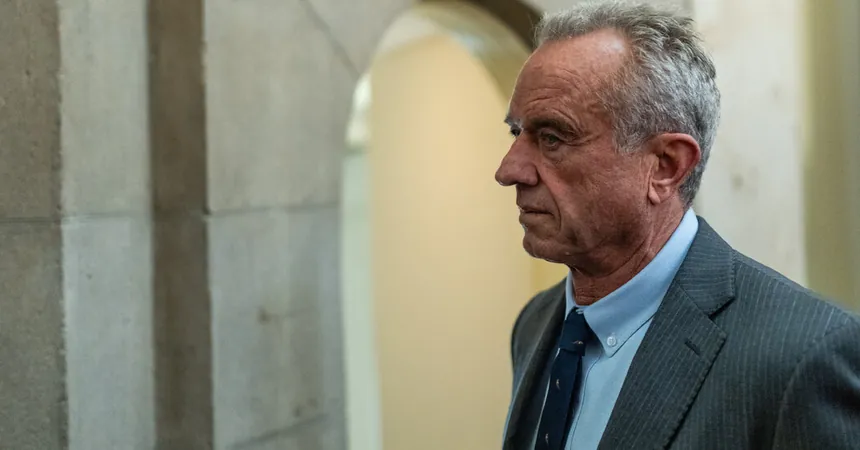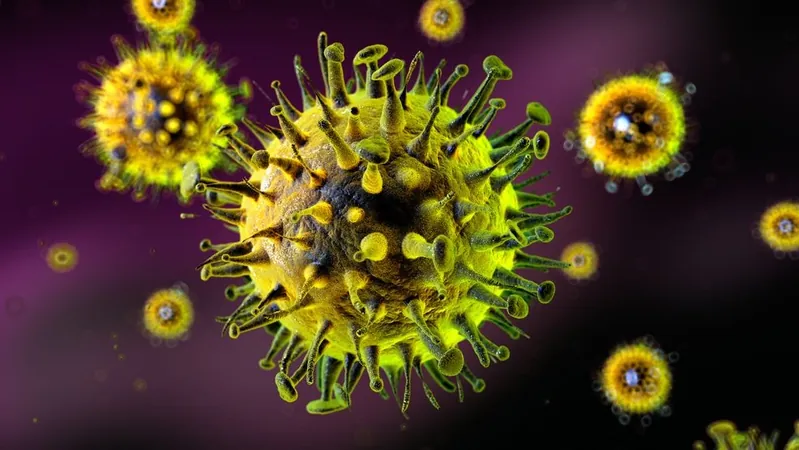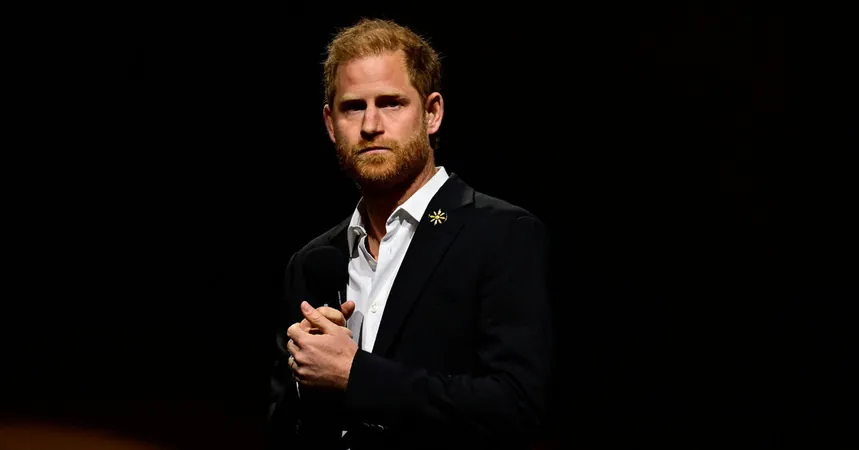
Shocking Move: RFK Jr. Enlists Controversial Vaccine Researcher for Autism Study
2025-03-28
Author: Wai
Shocking Move: RFK Jr. Enlists Controversial Vaccine Researcher for Autism Study
In a startling development that has ruffled feathers in the public health community, Robert F. Kennedy Jr., the newly appointed Health Secretary, has brought on David Geier, a researcher previously discredited for his work linking vaccines to autism. This controversial partnership has ignited concerns about the implications for vaccine confidence and public health.
David Geier is known for his attempts to connect the mercury-based preservative thimerosal found in vaccines with autism, a theory that has been thoroughly debunked by extensive scientific research. In 2012, authorities in Maryland uncovered that Geier had been practicing medicine without a license alongside his father, Mark Geier, who was found to have endangered children by exploiting their vulnerabilities. Mark Geier's medical license was subsequently suspended following numerous allegations of malpractice.
The scientific community has overwhelmingly dismissed the Geiers' research. Federal judges have ruled their findings on the autism-vaccine link unreliable, and the Institute of Medicine has publicly panned their studies for methodical flaws, determining no causal relationship exists between vaccines and autism.
The appointment of David Geier has alarmed public health experts who fear it may further erode vaccine trust, particularly at a time when vaccine hesitancy is already on the rise. Dr. Christopher Beyrer, director of the Duke Global Health Institute, issued a dire warning: "If we increase vaccine hesitancy and immunization rates go down further, we will see more outbreaks of vaccine-preventable diseases."
Kennedy's controversial decisions leading up to Geier's appointment, including the cancellation of vital vaccine meetings and cutting funding for research on vaccine hesitancy, have already drawn criticism. Many experts liken Geier's role in the upcoming vaccine safety study to having a referee wearing the jersey of one team—a clear bias towards a predetermined conclusion.
As the nation grapples with heightened autism rates, which now see 1 in 36 children diagnosed, the renewed focus on disproven theories could distract from meaningful research aimed at understanding the true causes of autism. Experts emphasize that this increase in diagnoses may reflect better awareness and improved diagnostic criteria rather than a link to vaccines.
Kennedy's embrace of dubious alternative treatments for measles during recent outbreaks has raised further concerns among experts. Notably, federal officials recently ordered the removal of misleading content from Kennedy's non-profit that suggested a vaccine-autism link, indicating growing scrutiny of misinformation.
In light of the controversy surrounding David Geier, many public health officials are worried about the potential ramifications of his involvement in government research. They argue that this move diverts precious resources away from scientific investigation that could offer genuine insight into the factors contributing to autism and other health issues.
The debate continues, with many urging for a return to objective, scientifically grounded research rather than revisiting discredited conspiracies. "To me, the big shame is that with budget cuts, we are not ramping up research into what is actually causing autism," lamented former CDC official Edward L. Hunter. The clock is ticking as health experts call for an urgent focus on the real factors affecting public health and the future of vaccination programs.


 Brasil (PT)
Brasil (PT)
 Canada (EN)
Canada (EN)
 Chile (ES)
Chile (ES)
 Česko (CS)
Česko (CS)
 대한민국 (KO)
대한민국 (KO)
 España (ES)
España (ES)
 France (FR)
France (FR)
 Hong Kong (EN)
Hong Kong (EN)
 Italia (IT)
Italia (IT)
 日本 (JA)
日本 (JA)
 Magyarország (HU)
Magyarország (HU)
 Norge (NO)
Norge (NO)
 Polska (PL)
Polska (PL)
 Schweiz (DE)
Schweiz (DE)
 Singapore (EN)
Singapore (EN)
 Sverige (SV)
Sverige (SV)
 Suomi (FI)
Suomi (FI)
 Türkiye (TR)
Türkiye (TR)
 الإمارات العربية المتحدة (AR)
الإمارات العربية المتحدة (AR)